Related Research Articles
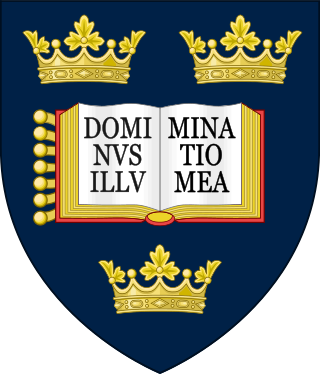
The University of Oxford is a collegiate research university in Oxford, England. There is evidence of teaching as early as 1096, making it the oldest university in the English-speaking world and the world's second-oldest university in continuous operation. It grew rapidly from 1167, when Henry II banned English students from attending the University of Paris. After disputes between students and Oxford townsfolk in 1209, some academics fled north-east to Cambridge where they established what became the University of Cambridge. The two English ancient universities share many common features and are jointly referred to as Oxbridge.
Oxford University Press (OUP) is the university press of the University of Oxford. It is the largest university press in the world. The first book was printed in Oxford in 1478, with the Press officially granted the legal right to print books by decree in 1586, it is the second oldest university press after Cambridge University Press, which was founded in 1534.
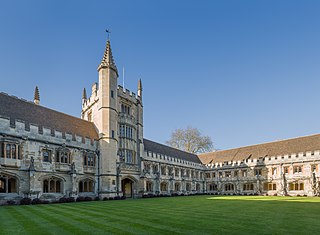
Magdalen College is a constituent college of the University of Oxford. It was founded in 1458 by Bishop of Winchester William of Waynflete. It has the highest total assets of any Oxford college, with £977 million as of 2022, and is one of the strongest academically, setting the record for the highest Norrington Score in 2010 and topping the table twice since then. It is home to several of the university's distinguished chairs, including the Agnelli-Serena Professorship, the Sherardian Professorship, and the four Waynflete Professorships.

Pembroke College, a constituent college of the University of Oxford, is located at Pembroke Square, Oxford. The college was founded in 1624 by King James I of England, using in part the endowment of merchant Thomas Tesdale, and was named after William Herbert, 3rd Earl of Pembroke, Lord Chamberlain and then-Chancellor of the University.

The Boat Race is an annual set of rowing races between the Cambridge University Boat Club and the Oxford University Boat Club, traditionally rowed between open-weight eights on the River Thames in London, England. It is also known as the University Boat Race and the Oxford and Cambridge Boat Race.

Sir James Ramsay Montagu Butler, was a British politician and academic. He was a member of parliament for Cambridge University from 1922 to 1923. He was Regius Professor of Modern History at the University of Cambridge from 1947 to 1954, and vice-master of Trinity College, Cambridge, from 1954 to 1960. He also saw military service during both the First and Second World Wars.

Sir William Smith was an English lexicographer. He became known for his advances in the teaching of Greek and Latin in schools.
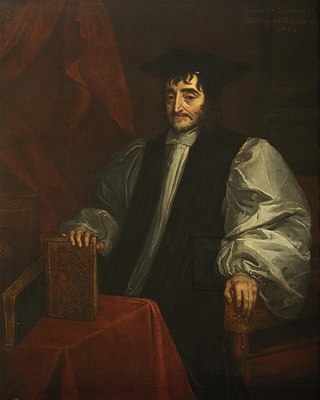
George Morley, was a senior member of the Church of England from London, who served as Bishop of Worcester from 1660 to 1662, and of Winchester from 1662 to 1684.

Sir William Reynell Anson, 3rd Baronet, was a British jurist and Liberal Unionist turned Conservative politician from the Anson family.

Clifford Edmund Bosworth FBA was an English historian and Orientalist, specialising in Arabic and Iranian studies.
William Atwater (1440–1521) was an English churchman, who became Bishop of Lincoln in 1514.
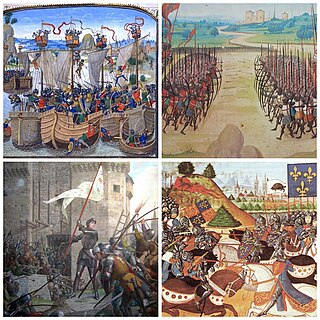
The Hundred Years' War was a series of armed conflicts fought between the kingdoms of England and France during the Late Middle Ages. It originated from English claims to the French throne. The war grew into a broader power struggle involving factions from across Western Europe, fueled by emerging nationalism on both sides. The periodization of the war takes place over 116 years, wherein the war was interrupted by several years of truces.
William Holmes D.D. was an English academic, Vice-Chancellor and Regius Professor of Modern History of the University of Oxford. He was also Dean of Exeter between 1742 and 1748.

Samuel Fell D.D. was an English academic and clergyman, Dean of Christ Church, Oxford and Vice-Chancellor of the University of Oxford during the First English Civil War.
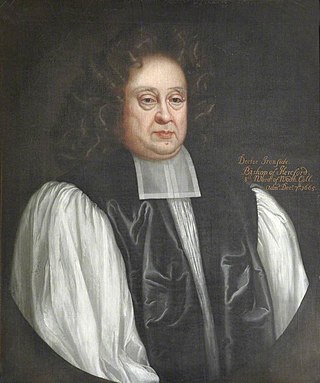
Gilbert Ironside the younger was an English churchman and academic, Warden of Wadham College, Oxford, from 1667, Bishop of Bristol and Bishop of Hereford.
Whittington Landon was an academic at the University of Oxford and an Anglican clergyman who became Dean of Exeter.
Francis Babington D.D. was an English divine and an academic administrator at the University of Oxford. He was elected Master (head) of Balliol College, Oxford on 2 September 1559, a post he held until he resigned the following year on 27 October 1560. Babington was Vice-Chancellor of Oxford University from 1560 to 1562. He was also Rector of Lincoln College, Oxford, from 1560 until he resigned in 1563.
John Nicholas D.D. was an English academic administrator at the University of Oxford.
Tara Chand was an Indian archaeologist and historian specialising in the ancient history and culture of India. He taught at Allahabad University and served as vice-chancellor in the 1940s.
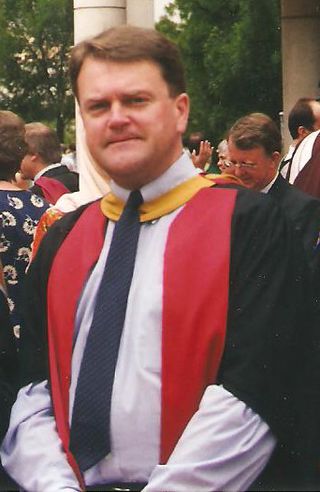
Jeffrey Guy Grey was an Australian military historian. He wrote two volumes of The Official History of Australia's Involvement in Southeast Asian Conflicts 1948–1975, and several other high-profile works on Australia's military history. He was the first non-American to become the president of the Society for Military History, but is perhaps best known as the author of A Military History of Australia.
References
- ↑ British History On-line
- ↑ Alumni Oxonienses 1500-1714, Riader-Roissie
- ↑ "The History and Antiquities of the Colleges and Halls in the University of Oxford, Vol 3" à Wood A, p697: Oxford; Clarendon; 1786